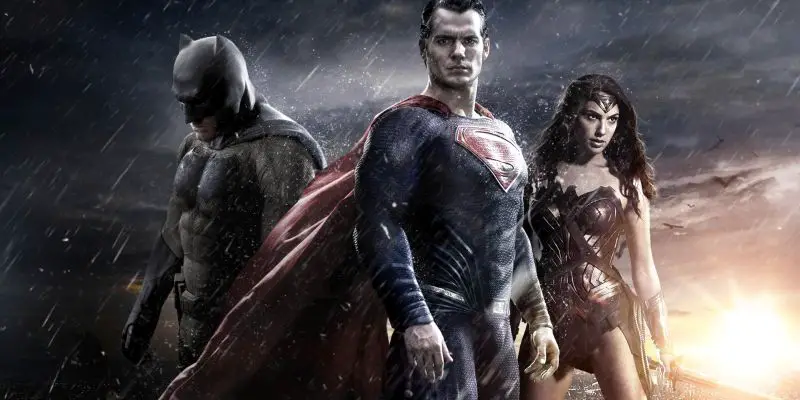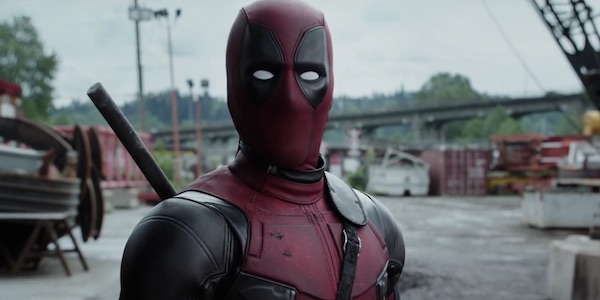Coming Sooner Than You Think: Do Release Dates Even Matter Anymore?

Lapsed scriptwriter and dad, currently failing to encourage my children…
Ever since Jaws hoovered millions of bathers off the hot sandy beaches and into the cinemas in 1975, the Summer Movie Season has been the defacto launch pad for the biggest Hollywood blockbusters of each year. Along with Christmastime, the summer window between May and the end of August is where you would traditionally find the mega-budget sequels and franchises whipping audiences into a deranged frenzy with coffer-drainingly expensive promotional campaigns.
So what was Batman vs Superman: Dawn of Justice doing opening in March, of all the dull months of the year, and to the tune of $425 million in one weekend? It might have seemed even more of an anomaly, had Deadpool not become Marvel’s eighth-biggest earner in the traditional flop-dumping month of February (it has now become the most successful R-rated movie of all time). Then Disney announced their most successful opening weekend ever with Zootropolis/Zootopia. Will there be any blockbusters left by the time the summer season starts this year, and does this amount to a major shift in studio thinking? In 2016, does it even matter when a movie opens?
Summer Moved On
One of the great joys of my youth was the monthly arrival, all the way from the US of A, of Premiere magazine. The May issue would land on the doormat with a notably heavier thud, since it was the annually bloated Summer Movie Preview, and the magazine was suitably padded more than usual by dozens of posters of upcoming attractions. There would be a countdown, listing the big studio hitters in order of expectation, which the Premiere writers didn’t always predict with pinpoint accuracy – in 1991 they guessed that the biggest film of the summer would be the DOA box office stinker Dying Young above Robin Hood: Prince of Thieves and Terminator 2: Judgement Day, but then it did have Julia Roberts‘ name above the title.
In fact, while we’re here, let us head back twenty five years to 1991 when for so many months, no wedding ceremony or school disco was complete without a slow-dance to Bryan Adams’s Everything I Do (I Do It For You). Out of the top twenty movies released that year, eight of them were released during the summer and nine made their debut during the Christmas/Oscar-baiting season. Of the other three, one (Sleeping With The Enemy) had the gold-dust of just-post-Pretty Woman Julia Roberts sprinkled over its generic bones, and Valentine’s Day’s The Silence of The Lambs was an astounding counter-programming anomaly.
The Teenage Mutant Ninja Turtles sequel The Secret of The Ooze was more telling, given the astonishing success of its predecessor twelve months before; successful, but also awful in too many ways for one to recall without slipping into a dark depression. The original Turtles movie, though, had similarly capitalised on a March release date that was relatively competition-free, and romped home to become the fifth most successful film of the year.

The previous summer had essentially been a stock car race of huge, testosterone-soaked, macho blockbusters lined up in the schedules one after the other: Days of Thunder, Bird on A Wire, Total Recall, Die Hard 2, Dick Tracy. “It was almost like a Pacman summer,” claimed 20th Century Fox’s executive VP Tom Sherak. “The new features ate up the ones that opened two weeks before.” Little did Paramount realise at the time, but the thick-veined masculinity of the big marquee titles of Summer in 1990 would be out-trumped by their own quiet little rom-com, Ghost (released in July to become the biggest film of the year). The illogical, self-defeating nature of this release strategy seemed to have sunk in.
“It’s Easy To Kill A Movie. Just Move It To January.”
Counter-programming, as in Ghost’s case, is an art form which many studios have benefited from mastering, but with movies taking so long to produce, it’s a nebulous science to perfect. A study of the two biggest movies ever made (three now, actually, since Star Wars: The Force Awakens followed the same release pattern) shows how profitable it has been to use the traditionally barren movie months – January and February specifically – to your advantage, like seasoned card-counters.
“If the first few months of the year are quiet, a film like Avatar can stay on top of the box office for weeks.” So says Paul Dergarabedian, Rentrak media analyst, who told The Wrap, “This is why the two top-grossing films of all-time (Titanic and Avatar) have been December releases…Both films benefitted from a marathoner’s strategy, slow and steady all the way to multi-dollar global receipts, with neither film setting the world on fire with their debut weekend grosses but capitalising on a pretty wide-open playing field from mid-December and into the typically slower periods of January, February and March.”

These are the typically slow months (known in Hollywood as ‘Dump Months), but in 2016 such months have already produced three bona fide blockbusters and several of which smashed box office records. Deadpool had the luxury of February all to itself (and a masterful marketing campaign to keep the pot bubbling). Batman v Superman was actually scheduled for a prime-time slot of May 6th (the Summer Movie Season starting pistol) but ducked, or appeared to back in 2014 in order to avoid a clash with Marvel’s Captain America: Civil War.
The strategy, initially viewed as the first swerve in a chicken-match, actually paid dividends since, in exactly the same way as Avatar, Titanic or The Force Awakens, there was nothing but an empty road ahead for a good three weeks – even with a purported 70% drop in its second week it still stayed at number one, though it was pipped to the top spot last week by Melissa McCarthy comedy The Boss.
Forget About Your Troubles And Your Strife
Batman v Superman at least had the Easter holidays in mind when its slot was booked so many years ago. What excuse, though, is there for Disney releasing what could potentially be the biggest family movie of the year in April? The Jungle Book is the high watermark in the studio’s new platform of live-action remakes of popular animations, and has been receiving excellent press and strong reviews, so what is it doing opening when all the kids are still at school? This weekend’s numbers for The Jungle Book will, I’m quite sure, prove that whether school’s in or out, if people want to go and see a movie, they will go and see it.

This new release date thinking is so especially noticeable this year since it feels like, by the time Captain America: Civil War opens at the end of April, all of the biggest films of the year will already have been released. One of the most anemic summers in memory lies ahead: X-Men: Apocalypse, Star Trek Beyond, Jason Bourne and Alice Through The Looking Glass are all following unpopular predecessors. Independence Day: Resurgence’s predecessor was 20 years ago, and the Ghostbusters reboot has been suffering from the fallout of a disappointingly laugh-free first trailer.
The likely big winners will be Pixar’s Finding Dory and Spielberg’s The BFG. Shane Black’s The Nice Guys will benefit from being the only big-hitter designed for grown-ups, and it’s interesting to see how Suicide Squad is already evolving in public as an antidote to the sombre Batman v Superman.
Why Wait?
None of these movies shoulder anything like the box office expectations of Batman v Superman, Deadpool or The Jungle Book. Do release dates matter anymore? Could it simply be that we the audience, our viewing habits forever changed by Netflix, digital streaming and box-set bingeing, are now so used to being able to watch what we want when we want that the very concept of having to wait for a ‘Season’ now seems like something left over from the 20th Century?
Thoughts on the matter? Share them below.
Sources:
Premiere Magazine: June 1991
The Christian Science Monitor, January 19th 2016 (writer Molly Driscoll)
Mike Myers. Saturday Night Live, December 2014.
Entertainment Weekly, September 7th 1990, writer Gregg Kilday
Does content like this matter to you?
Become a Member and support film journalism. Unlock access to all of Film Inquiry`s great articles. Join a community of like-minded readers who are passionate about cinema - get access to our private members Network, give back to independent filmmakers, and more.
Lapsed scriptwriter and dad, currently failing to encourage my children to watch black and white films. Alter-ego: a mild-mannered restaurateur in north Wales. Have been writing about films and food for three years in magazines like Cinema Retro and The Chap, and on websites like HeyUGuys.com and Taste of Cinema. Obsessed by cinema in all its forms.













